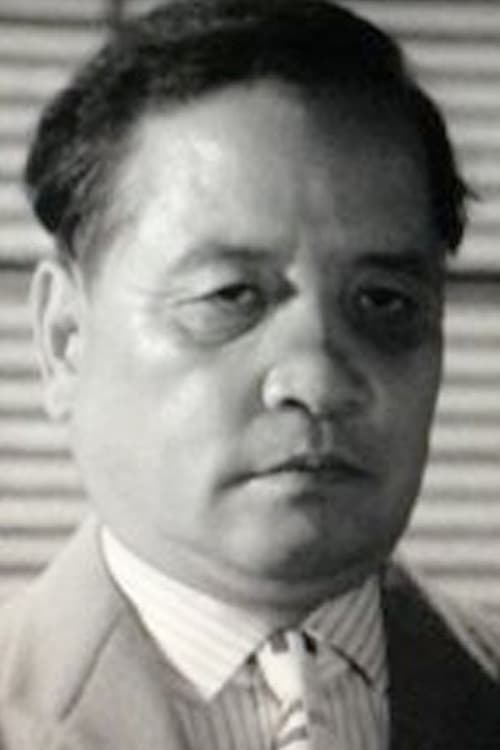Jun Ōtomo
Nascimento : 1899-11-21, Sendai, Miyagi Prefecture, Japan
Morte : 1978-12-28
História
Originally a music teacher, Jun joined the Toho Mobile Culture Corps during WWII. He ultimately became active as a character actor in Toho and Shintoho productions in the '50s and '60s. Noted for his menacing onscreen countenance, he was remembered for his mild-mannered and affable nature in private life.
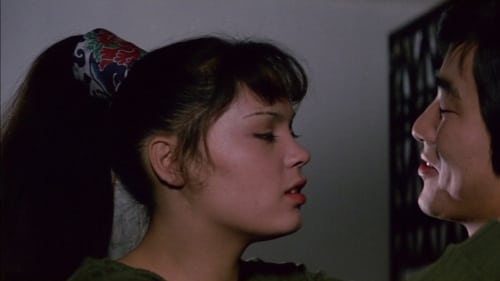
Tabucho
First film of a trilogy following the dramatic life of Rika, a half-Japanese/half-American woman who becomes the tough-as-nails leader of an all-girl crime gang.

Ôsa Gondô
Horror film directed by Satoru Kobayashi. Kin'ya Ogawa served as Kobayashi's assistant on this film.

Crime film distributed by Taiho.

Naganuma
Two young crooks who scam betters in the race track are employed by a yakuza gang called the Shigemori Syndicate to steal a shipment of handguns from a rival gang. Somewhere in the process they find themselves on the run from their own gang and one of them becomes himself romantically entangled with the boss's girlfriend. An ambitious underboss of the gang offers them a way out if they murder the previous boss but things don't turn out as planned (for everyone).
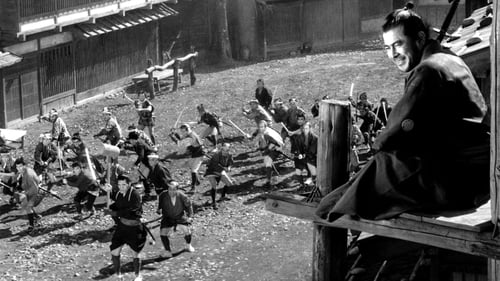
Seibei Follower
A história ocorre em 1860 e baseia-se na chegada de um ronin a uma cidade que sofre com a guerra entre duas gangues. Kuwabatake Sanjuro, que significa "Amoreira de 30 Anos" (Toshirō Mifune), aproveitando a sua perspicácia tenta ganhar dinheiro e, ao mesmo tempo, livrar a cidade das gangues rivais, ora associando-se a um grupo, ora associando-se a outro, tirando proveito da situação e manipulando-os, devido ao despreparo estratégico dos dois grupos, que é demonstrado através de diversas cenas satíricas durante o filme.

Japanese comedy film.
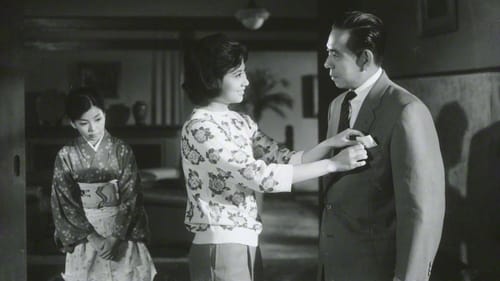
At the end of the Greater East Asia War, young Amada Koichi and his father were wrongfully accused as spy suspects and his father died in prison after being tortured. Ten years later, Amada seeks for revenge on the three men responsible for his father death.

Rumi (Yoko Mihara) and Emi (Masayo Banri) are sisters who dance nightly at the Blue Moon cabaret, which happens be the headquarters of a drug ring. Offstage, Rumi captivates the gang boss, Iwahara (Shuntaro Emi); while Emi attracts the portly club manager, Yajima (Saburo Sawai). Meanwhile their older brother Shinichi (Ryo Kuromaru), a seaman, is unwittingly assisting Iwahara with his drug running. When Shinichi’s ship is sea-jacked by another drug gang, an outraged Iwahara suspects him of treachery and has him beaten and confined in a dungeon-like basement. Rumi and Emi try to free him, but a gang hitman discovers them - and their attempt ends in failure. Now under suspicion themselves, the girls try to escape, but luck goes against them and they are taken to an island where Iwahara and his crew plan to ambush the rival gang.

Japanese crime film.

Japanese action film.

Ensai Taniguchi
A group of sinners involved in interconnected tales of murder, revenge, deceit and adultery all meet at the Gates of Hell.

War Minister Anami
Japanese war film.

Agawa
From the king of Japanese exploitation films comes a criminal drama told in a semi-documentary fashion. The murder of the chief official of Kobe city's Customs triggers an investigation of a prostitution ring called the 'Yellow Line' that sells Japanese women. A hired assasin is betrayed by his organization, and kidnaps a woman who happens to be the girlfriend of a newspaper reporter.


Yukichi Tachibana
Freelance reporter “Scoop” Machida is hot on the trail of a prostitution ring called the Black Line, when he is framed for the murder of a young woman. Forced to clear his own name, the handsome journalist sinks deeper into the Black Line’s rotten swamp of drugs, prostitution, and murder and finds unexpected help in Maya, a steamy female gambler familiar with the neon-lit streets, shadowy alleyways, and seedy nightclubs he must navigate. The closest film in the Line series to classic American film noir, Ishii’s Black Line is a pulpy assortment of crime film conventions including the starkly expressionistic black and white cinematography by Jûgyô Yoshida, a jazzy music score by Michiaki Watanabe, and a sleazy screenplay by Ishii and Ichirô Miyagawa.
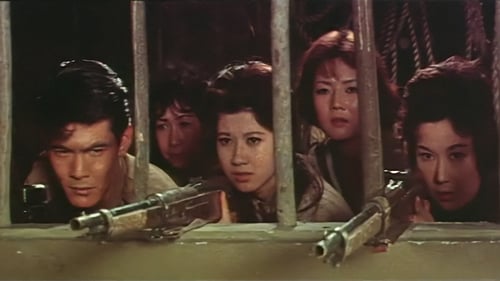
Fox
The year is 1945, months prior to Japan's ultimate defeat in WW2, and military lieutenant Sugawa is sent on a critical mission to deliver micro-fiche war plans to Tokyo from his base in Malaysia. But while flying over Chinese waters his plane is shot down and he is taken aboard a ship bound for Shanghai to deliver its merchandise - a ship filled with Female Slaves kidnapped from Japan. Will he abandon the women to pursue his main objective? Or will he fight foes, spies and pirates to save these women against all odds?

Fake Nogemura
The first Nanairo Kamen movie.
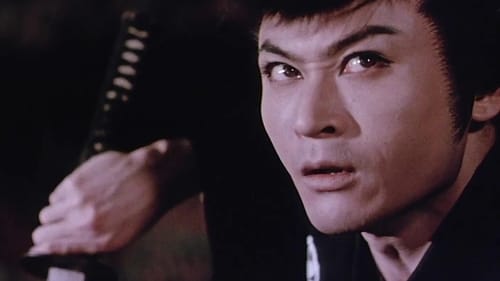
Takuetsu
The ghost of a samurai's wife takes revenge on her husband.

1959 film directed by Teruo Ishii for Shintoho.

War drama about army nurses.

(uncredited)
Kaji, um administrador civil pacifista, foi nomeado supervisor de um campo de prisioneiros na Manchúria durante a 2ª Grande Guerra. Seus problemas começam quando o tratamento humanitário com os trabalhadores das minas e os prisioneiros de guerra que Kaji supervisiona irrita seus superiores.
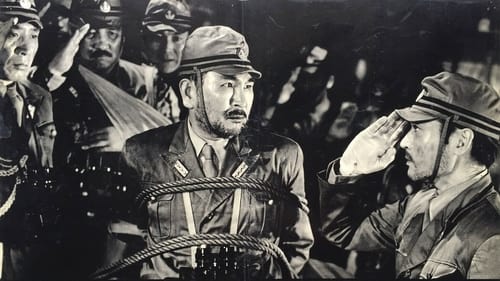
In 1941, overpopulated Japan faces an economic boycott and its armed forces push further to the south. And despite negotiations between Japan and the U. S. A. war is declared with the attack on Pearl Harbour. Victories follow for Japan on land and sea and her forces push forward to the borders of India. But gradually the tide turns in favour of the Allies and after the atom bombings of Hiroshima and Nagasaki, Japan is compelled to accept the Potsdam Declaration and by the order of the Emperor agrees to unconditional surrender. Under the supervision of the occupation forces the International Military Tribunal opens in Tokyo to try the Japanese war leaders. Established in the cause of justice, and to prevent future aggressive wars the trials drag on for two and a half years. And on December 23, 1948, General Tojo and six other war leaders mount the thirteen steps to the gallows at Tokyo's Sugamo prison.
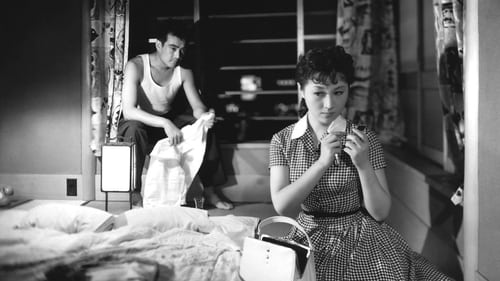
Construction camp master
Two detectives begin a stakeout based on the slim chance of catching a murderer whom they suspect will try to reunite with an old flame.

(uncredited)
The story follows a university student who moves into an apartment building and becomes involved with a waitress. The landlord then attempts to evict the tenants and sell the building through illicit means.
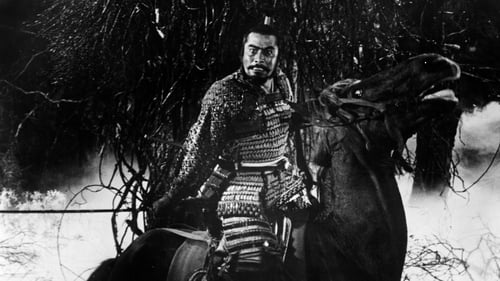
Commander
Japão, século XVI. As guerras civis sacodem o país. Dois valentes samurais, os generais Washizu Taketori (Toshirō Mifune) e Miki (Minoru Chiaki), regressam aos seus domínios depois de uma batalha vitoriosa. No caminho, uma misteriosa senhora profetizao futuro de Washizu: o guerreiro se converterá no Senhor do Castelo do Norte. A partir deste fato Washizu, auxiliado por sua esposa Asaji Isuzu Yamada, se vê imerso numa trágica e sangrenta luta pelo poder.
Trono Manchado de Sangue (蜘蛛巣城, Kumonosu-jō?, literalmente "Castelo Teia de Aranha") é um filme japonês de 1957 dirigido por Akira Kurosawa, que transpôs a obra Macbeth de William Shakespeare para o Período Sengoku japonês (séc. XV - XVI).

A battle for a large sum of money unfolds on the docks near a steel mill in a foggy atmosphere. Manzo, an engineer on the verge of retirement, witnesses two men shooting each other and collapsing on the quay while his assistant Shinsuke is away.

Police Officer
An episodic film about life in and around a rural police station and the people it serves.

Bad boy at Rokku
Three sisters earn money for their bossy mother by being samisen street musicians. This means mainly playing a banjo type instrument for tips in bars...
